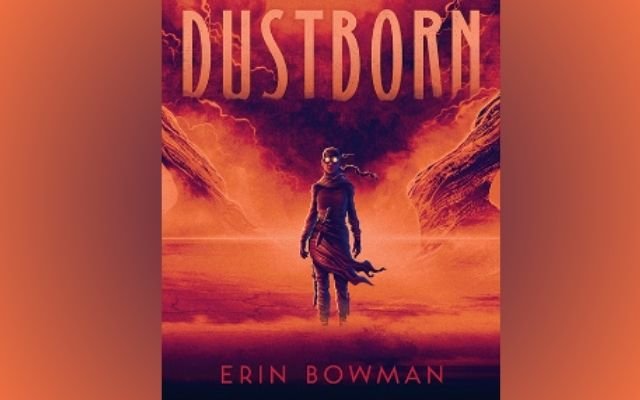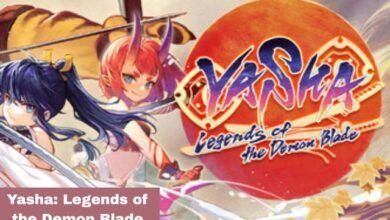Dustborn Review: A Narrative-Driven Game with Multiple Messages
Dustborn Review: Explore a dystopian world where choices shape the story, blending narrative, combat and rhythm in a unique experience.

Dustborn is a narrative-driven game with clear message or rather, many messages. It emphasizes power of choice but not just through big, life-changing decisions. Instead game highlights how small choices build up over time to shape who we are.
Main character, Pax, reflects on this idea during game’s 15-hour journey, acknowledging that her life’s path was shaped by every choice she made not just one defining moment. Game is designed to make this message clear to player.
Table of Contents
Gameplay and Mechanics
Created by Red Thread Games and published by Quantic Dream’s Spotlight label, Dustborn belongs to genre of choice-driven games where your decisions impact storyline and character development. Beyond simple dialogue choices, Dustborn also includes combat, rhythm sections and quicktime events which add variety to gameplay. These interactive elements make it stand out within visual novel genre offering blend of gameplay styles.
Social and Political Themes
Game also tackles various social & political topics and features diverse cast of characters including LGBTQ+ representations. It sets itself up as political road trip saga about people with superpowers filled with ambition and different issues to explore.
Narrative Strengths and Weaknesses
However, despite its potential Dustborn sometimes struggles with its delivery. Way it handles its themes can feel heavy-handed as if it’s over-explaining its messages to the player. While game has lot to say it tends to repeat its points which can lessen impact of its narrative. Though ambitious, game could have benefited from subtler approach to its storytelling.
Plot Overview
Dustborn is visual novel-style game where you play as Pax, leading group of friends and strangers on mission to deliver valuable package across The Republic of America to Canada’s resistance movement. Posing as punk band called “Dustborn,” they hope to escape the dangers of a broken, fascist America. Along the way, you must guide your group through different parts of the country by making decisions, some small and conversational, others much bigger and riskier.
For instance, early in the game, Pax gets pulled over by a cop. You can either talk your way out of it or use Pax’s special power, called Vox. Vox allows characters to influence others with their voice and Pax’s power negatively affects people, causing them to panic or endanger themselves. If talking fails you have the option to use Vox, though it might not work as intended.
While the overall story is largely predetermined, your choices shape how events unfold and can come back to haunt you later. Game also creates tension by forcing you to choose between using your personal skills or relying on your Vox ability adding pressure with timed decisions. Despite being set in dangerous dystopian world game focuses heavily on relationships & character development with most impactful choices revolving around how you interact with others.
Each of party members has three possible paths they can take depending on choices. For example- your sister Ziggy might remain pessimistic or she could become more idealistic based on how you help her process shared trauma. There are no right or wrong choices & outcomes aren’t always predictable. Game even tracks your decisions in separate menu with icons indicating when choice will affect character’s development.
Worldbuilding and Themes
Besides choice-driven gameplay, Dustborn features other systems like combat and rhythm games. Combat is straightforward, featuring a magnetic bat that can be thrown like a boomerang. You’ll also have special attacks, including taunts and Vox abilities that influence enemies’ actions. The strategy in battle mainly revolves around choosing the right Vox powers, especially since some abilities work better against certain foes.
Rhythm game elements tie into the band’s storyline, where you’ll need to perform songs successfully by pressing buttons at the right time, similar to games like Guitar Hero. Though not too complex- these rhythm sections are fun & add variety. For example- during one performance you need to convince border guards that you’re real band and your success or failure affects how guards treat you.
These systems work together to keep game dynamic, balancing slower, dialogue-driven moments with action and rhythm sections. Although outcomes of battles and performances don’t dramatically change story, they add energy and make experience feel more interactive than typical visual novel.
Game is set in bleak, dystopian world where authoritarianism and disinformation rule. There are internment camps for children, underground libraries struggling to survive and paranoia spread by strange entities called Echoes. The backstory revolves around an alternate history where Jackie Kennedy, not JFK, was assassinated, leading to the collapse of society. Though setup may seem far-fetched, game follows its own logic and dives deep into political themes, reflecting modern concerns about rising authoritarianism.
Dustborn tries to tackle these heavy themes with sharp dialogue and emotional moments but sometimes its approach feels clunky and too on-the-nose. Game often spells out its messages about power of words and spread of information in ways that feel bit too direct lessening their impact. Game even introduces quirky elements like raccoon named Mr. President or moments of awkward dialogue like shouting “Girl power!” during battle, creating tonal clash that can be jarring.
Despite these inconsistencies, Dustborn carries genuine message about importance of words and how they can shape the world around us. While it doesn’t always deliver this message perfectly, game’s heart is in right place. It’s also visually appealing, features diverse cast and brings some lighthearted moments amidst heavier themes. Though it could be smoother in execution, Dustborn remains game that has something meaningful to say even if it doesn’t always get it across flawlessly.
Pros and Cons Dustborn
| 👍Pros | 👎Cons |
|---|---|
| 😊 Fun combat and rhythm sections | 🤔 Inconsistent writing quality |
| ✔️ Easy-to-understand choices | 😕 Weak ending and message |
| 🎨 Interesting characters | ❌ |
| 🌍 Good worldbuilding | ❌ |
- Madden NFL 25 Review
- Lenovo Legion Pro 7i Gen 9 vs Lenovo Legion Pro 5i Gen 9
- Lenovo Legion 7i Gen 9 Review: A Gaming Laptop
Conclusion
Dustborn is a visual novel-style game that mixes combat and rhythm gameplay in a dystopian world where your choices shape the story. While it offers a unique experience with decisions that impact characters and events, game can sometimes feel awkward and unpolished. Its mechanics like combat and music, are meant to add variety but can be a bit disconnected. Despite these issues, Dustborn stands out for trying something different, blending action, choices and storytelling in fresh way.




Reading your work feels like stepping into a quiet space where everything makes sense, even the things that were once unclear.